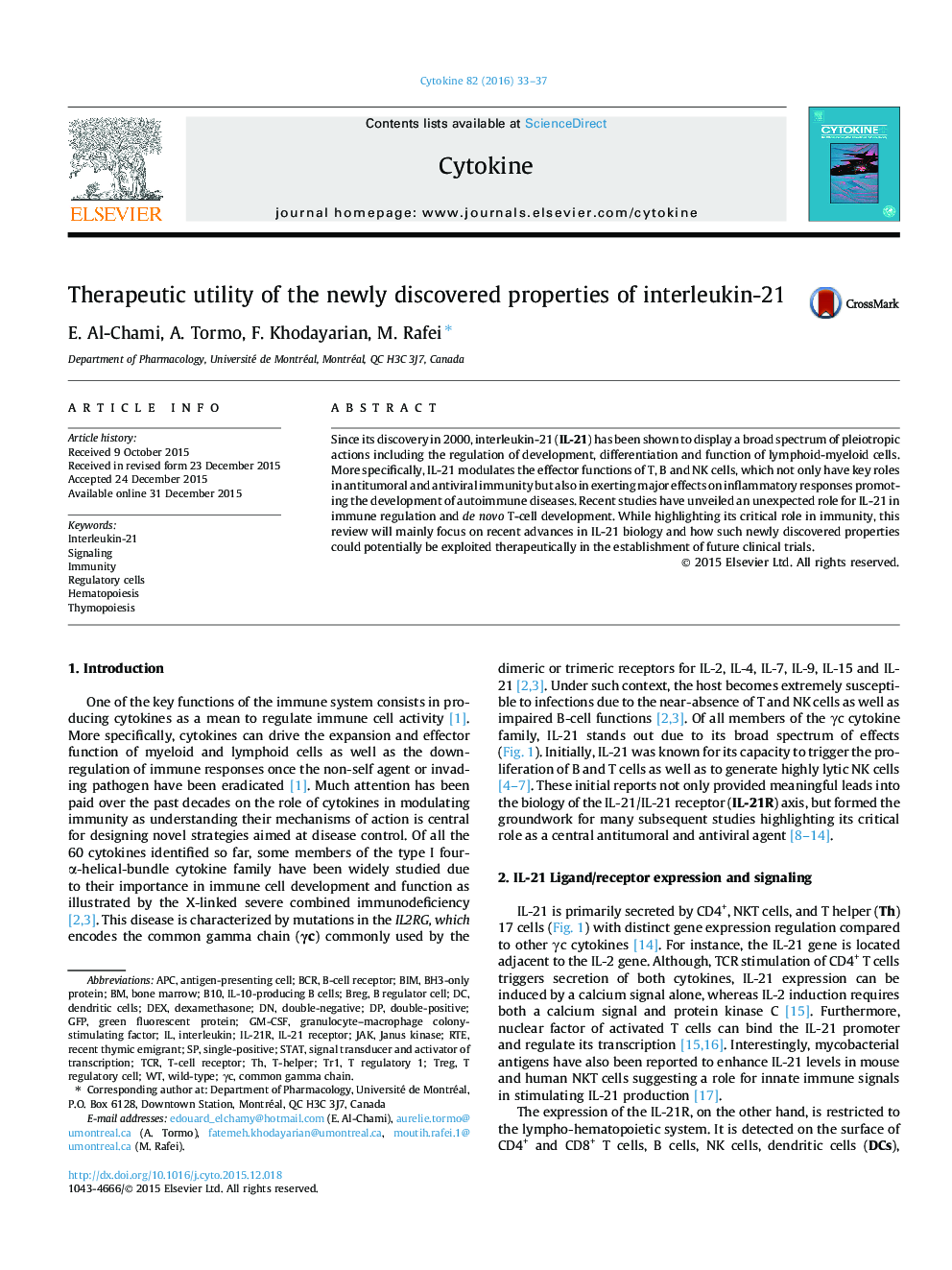| Article ID | Journal | Published Year | Pages | File Type |
|---|---|---|---|---|
| 2793812 | Cytokine | 2016 | 5 Pages |
•IL-21 displays pleiotropic effects on both innate and adaptive immune cells.•IL-21 modulates DC activity affecting therefore peripheral tolerance.•IL-21 triggers immunosuppression by promoting IL-10 secretion from T cells.•IL-21 signaling in B cells induces the development of regulatory B10 cells.•The IL-21/IL-21R axis could be exploited to stimulate de novo thymopoiesis.
Since its discovery in 2000, interleukin-21 (IL-21) has been shown to display a broad spectrum of pleiotropic actions including the regulation of development, differentiation and function of lymphoid-myeloid cells. More specifically, IL-21 modulates the effector functions of T, B and NK cells, which not only have key roles in antitumoral and antiviral immunity but also in exerting major effects on inflammatory responses promoting the development of autoimmune diseases. Recent studies have unveiled an unexpected role for IL-21 in immune regulation and de novo T-cell development. While highlighting its critical role in immunity, this review will mainly focus on recent advances in IL-21 biology and how such newly discovered properties could potentially be exploited therapeutically in the establishment of future clinical trials.
